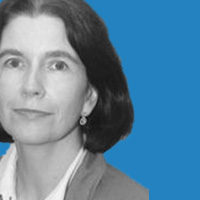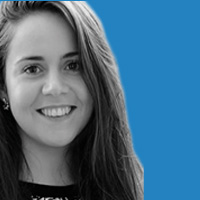


The UN Sustainable Development Goals (SDGs) represent an ambitious, strategic framework which calls for concerted efforts from government, industry, and NGOs towards building an inclusive, sustainable, and resilient future for people and planet. Education, research, and innovation are essential in sustainable development, making universities key contributors to achieving the goals. University College Dublin demonstrates its commitment to sustainable development by reviewing its educational offerings though an SDG lens.
In 2015, the United Nations’ resolution Transforming Our World: The 2030 Agenda for Sustainable Development (‘the 2030 Agenda’) was adopted by all 193 member states. The 2030 Agenda, which is considered ‘one of the most ambitious and important global agreements in recent history’ (SDSN Australia/Pacific, 2017, p. 2), aims to deliver a more sustainable, prosperous, and peaceful future, and sets out a framework for how to achieve this by 2030. The framework builds on the Millennium Development Goals and is made up of seventeen Sustainable Development Goals (SDGs) covering the social, economic, and environmental requirements for a sustainable future.
In response to the UN’s call for action, governments across the globe have established national frameworks for achieving the goals. Ireland’s ‘SDGs National Implementation Plan 2018–2020’ (NIP) sets out how the nation will work to achieve them, both domestically and internationally. The role of education is addressed explicitly in the NIP, and the existing National Strategy on Education for Sustainable Development in Ireland, developed in 2014 by the Department of Education, is being monitored for execution under the national plan.
Education is closely interlinked with all the SDGs and plays a crucial role in their implementation. This crucial role in tackling global challenges is explicitly recognised through SDG 4: Quality Education, which stresses the need to ensure ‘inclusive and equitable quality education and promote lifelong learning for all’ (UN, 2015). Some of the targets in this goal emphasise the impact of primary education on literary and numeracy. Other targets recognise secondary education and its capacity to create pathways for female empowerment and educational specialisation. Remaining targets address third-level education and its responsibility to develop thoughtful, highly skilled graduates.
Inspired by the 2030 Agenda and the university’s 2015 strategic mission to ‘Tackle Global Challenges’, UCD decided in 2018 to develop a project to map its actions in education, research, governance, and engagement against the SDGs. Guided by the 2017 SDSN Australia/Pacific publication ‘Getting started with the SDGs in universities’, the project aimed to map existing UCD actions and activities against the seventeen goals in order to show what UCD was already doing to advance the 2030 Agenda. The SDSN Australia/Pacific guide (2017, pp. 31–32) considers this the first step to becoming an SDG-engaged university. A UCD SDGs steering committee was established to oversee the work of four subgroups, and an initial analysis was completed. This article will focus on the findings of the UCD SDGs Education Group.
It is important to stress at the outset that UCD has an extended history in education for sustainable development that has long preceded the 2030 Agenda. In the 1950s, UCD, like other Irish universities, had a visible tradition in the development of liberal adult-education programmes that focused on languages, arts, music, social sciences, and recreation. This was underpinned by strong emphasis on Catholic or social action (reflective of the context and period) aimed at involving people in their environments. By the 1980s, the then Department of Economics was an early pioneer of research and teaching in the area of sustainable development through the work of Helen O’Neill, a founding director of the UCD Centre for Development Studies.
More recently, UCD responded to the Millennium Development Goals through various teaching programmes in the School of Education, Centre for Equality Studies, and Centre for Development Studies. The UCD Centre for Humanitarian Action (CHA) was established in 2012 and is an internationally recognised platform of excellence for humanitarian research and education. This rich tradition is reflected in the diversity of modules that are currently on offer to our undergraduate and graduate students. These early initiatives in UCD demonstrate how sustainability was translated into practices in various ways in disciplines across the university.
[ctt template=”2″ link=”WUfcd” via=”no” ]Education is closely interlinked with all the SDGs and plays a crucial role in their implementation.[/ctt]
In 2015, UCD had a direct role in the development of the SDGs through the advocacy of Professor Patrick Paul Walsh, UCD School of Politics and International Relations, who represented universities as a member of the UN Major Group for Science and Technology in the intergovernmental negotiations on the SDGs. Through the work of this group the roles of academia, science, research, and innovation are firmly embedded in the SDGs.
With this rich history in mind, the SDGs Education Group identified two main components of UCD’s educational experience: Curriculum, and Co-Curriculum or Student Experience. Three key actions to map both components were defined:
The review of UCD undergraduate and graduate programmes revealed that beyond Goal 4, the three key goals most prevalent in the undergraduate and graduate taught programmes are SDG 3: Good Health and Wellbeing, SDG 9: Industry, Innovation and Infrastructure, and SDG 17: Partnerships for the Goals. Substantively all seventeen goals are addressed to varying degrees in the curriculum, with all six colleges in the university contributing significantly to ‘Education for the SDGs’.
The SDGs Education Group then carried out a university-wide consultation to map UCD’s co-curricular environment to the SDGs. Unsurprisingly, UCD Access and Lifelong Learning (ALL), which supports the university’s work towards achieving its diversity and inclusion mission, emerged as a key unit in advancing the targets set out by Goal 4: Quality Education. ALL’s work plan underscores the importance of mainstreaming access in higher education (HE). Students from low-income households, students with disabilities, first-time mature students, and Irish Travellers are among the groups identified in the plan as under-represented in HE.
[ctt template=”2″ link=”K2N7O” via=”no” ]UCD has an extended history in education for sustainable development.[/ctt]
To tackle this under-representation, a widening-participation committee was established in 2012 as the formal structure to generate guidance on the policy and practice of access, widening participation and lifelong learning. The committee oversees ‘University for All’, a whole-institution approach to mainstreaming inclusion at every level. The committee and its initiatives are now aligned with the university’s academic structures, ensuring that equality of access and participation is embedded in the fabric of UCD.
Other initiatives that support UCD’s diversity and inclusion objectives include financial support to students from low-income households, a career consultant to work with access students, a campus accessibility officer dedicated to developing an accessible built and technological infrastructure that serves the needs of all students, and the development of seven alternative entry routes for under-represented students. Among these are the University Access Programme and UCD Open Learning.
In recognition of some of the diversity and inclusion initiatives, the university was designated as an Age-Friendly University and received University of Sanctuary status in 2018.
UCD Global is another unit whose work contributes significantly to achieving Goal 4 and Goal 17: Partnerships for the Goals. UCD Global steers the global strategies of the university, providing expert leadership in everything from partnerships and mobility to the international elements of the student experience.
UCD Global works with the Irish Council for Overseas Students (ICOS) in supporting Irish Aid scholarship applications, and reserves on-campus accommodation for such scholars. The unit also works to ensure tuition fee waivers for refugee or asylum-seeker students where necessary. A global experience manager works to ensure that international students are supported with their integration into the university community, and that all students have an opportunity to consider an international study or work opportunity as part of their degree.
UCD Global is also home to UCD Volunteers Overseas (UCDVO) which runs an annual Volunteering and Development Education training programme for 120 participants. This includes workshops on ethical volunteering, intercultural education, responsible volunteering training, and a four-week placement overseas. Participants expand their knowledge of SDG issues such as access to healthcare, gender inequality, and the impact of climate change.
Campaign coordinators in UCD Students’ Union have been responsible for numerous efforts which contribute to implementing the SDGs, for example reducing plastic waste in UCDSU on-campus shops, lobbying for universal access to sexual and reproductive healthcare, and combating sexual violence and harassment through participation in the ESHTE programme (Ending Sexual Harassment and Violence in Third-Level Education). These actions are often coupled with fundraising initiatives for relevant national charities such as the Dublin Rape Crisis Centre, the Peter McVerry Trust, and Pieta House.
[ctt template=”2″ link=”75hD1″ via=”no” ]UCD had a direct role in the development of the SDGs through the advocacy of Professor Patrick Paul Walsh.[/ctt]
Several cross-university groups in UCD, made up of both staff and students, contribute to the SDGs. Examples include the UCD Sustainable Energy Community, EcoUCD, UCD Smarter Travel Group, UCD Women in Politics, and UCD Green Campus. These groups allow those with specific interests to collaborate and network, as well as pooling resources for common goals.
This initial mapping of the educational aspects of UCD’s activities in the context of the SDGs revealed, firstly, that UCD’s mission, values, and strategic plan are compatible with Goal 4 – to produce a high-quality educational experience that supports and equips all students to contribute meaningfully to the objectives of the SDGs. Secondly, from a curriculum perspective, UCD’s taught undergraduate and graduate programmes in all six colleges are addressing one or more of the SDGs. Thirdly, in terms of co-curriculum support and the student experience, many initiatives are again aligned with the goals.
Such revelations, although not entirely unexpected, are a reminder of the powerful function of HEIs and the responsibility that comes with such influence. Professor Jeffrey Sachs, special adviser to the UN Secretary General on the SDGs, described the critical role of education in advancing the SDGs upon receiving his UCD Ulysses Medal in 2017. He said that the challenge of sustainable development requires universities to lead, as students are ‘the participants and the protagonists who are needed to help shape the kind of future that we want’ (Sachs, 2016).
UCD is now working towards operationalising the further integration of education for sustainable development, or education for the SDGs, into the curriculum and the student experience to strengthen and deepen the unique contribution of the university in supporting and accelerating global capacity to implement the SDGs (UNESCO, 2016).
Sachs, J. (2016) ‘Universities in the age of sustainable development’. Speech, 27 October, Dublin, Ireland. www.youtube.com/watch?v=1SKRB_Sg_p4.
SDSN Australia/Pacific (2017) ‘Getting started with the SDGs in universities: A guide for universities, higher education institutions, and the academic sector’. Australia, New Zealand, and Pacific Edition. http://ap-unsdsn.org/wp-content/uploads/University-SDG-Guide_web.pdf.
UNESCO (2016) ‘Education for people and planet: Creating sustainable futures for all’. New Global Education Monitoring Report Series. Paris: UNESCO. https://en.unesco.org/gem-report/report/2016/education-people-and-planet-creating-sustainable-futures-all/.
United Nations (UN) (2015) Sustainable Development Goal 4: Quality Education. https://sustainabledevelopment.un.org/sdg4.
Copyright © Education Matters ® | Website Design by Artvaark Design